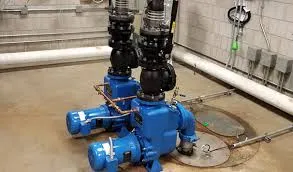Icelandic
- Afrikaans
- Albanian
- Amharic
- Arabic
- Armenian
- Azerbaijani
- Basque
- Belarusian
- Bengali
- Bosnian
- Bulgarian
- Catalan
- Cebuano
- Corsican
- Croatian
- Czech
- Danish
- Dutch
- English
- Esperanto
- Estonian
- Finnish
- French
- Frisian
- Galician
- Georgian
- German
- Greek
- Gujarati
- Haitian Creole
- hausa
- hawaiian
- Hebrew
- Hindi
- Miao
- Hungarian
- Icelandic
- igbo
- Indonesian
- irish
- Italian
- Japanese
- Javanese
- Kannada
- kazakh
- Khmer
- Rwandese
- Korean
- Kurdish
- Kyrgyz
- Lao
- Latin
- Latvian
- Lithuanian
- Luxembourgish
- Macedonian
- Malgashi
- Malay
- Malayalam
- Maltese
- Maori
- Marathi
- Mongolian
- Myanmar
- Nepali
- Norwegian
- Norwegian
- Occitan
- Pashto
- Persian
- Polish
- Portuguese
- Punjabi
- Romanian
- Russian
- Samoan
- Scottish Gaelic
- Serbian
- Sesotho
- Shona
- Sindhi
- Sinhala
- Slovak
- Slovenian
- Somali
- Spanish
- Sundanese
- Swahili
- Swedish
- Tagalog
- Tajik
- Tamil
- Tatar
- Telugu
- Thai
- Turkish
- Turkmen
- Ukrainian
- Urdu
- Uighur
- Uzbek
- Vietnamese
- Welsh
- Bantu
- Yiddish
- Yoruba
- Zulu
Telephone: +86 13120555503
Email: frank@cypump.com
sep . 03, 2024 10:13 Back to list
Centrifugal Chemical Pump - Efficient & Reliable Fluid Transfer Solutions
Understanding Centrifugal Chemical Pumps Key Features and Applications
Centrifugal chemical pumps are integral to various industries, particularly in the transportation of corrosive or hazardous fluids. These pumps utilize rotational energy from a rotating element, typically a rotor or impeller, to propel liquids through a system, making them essential in applications ranging from chemical processing to wastewater treatment.
How Centrifugal Chemical Pumps Work
The fundamental principle behind a centrifugal chemical pump is relatively simple. When the impeller spins, it flings the fluid outwards by centrifugal force. As the fluid moves away from the center, it generates a drop in pressure at the impeller's eye, which creates a vacuum. This vacuum allows more fluid to be drawn into the pump from the source. The continuous movement of the impeller produces a steady flow, allowing for efficient fluid transport.
Centrifugal pumps are typically designed with a volute or diffuser casing, which helps convert the kinetic energy of the fluid into pressure energy as it exits the pump. This feature is crucial for ensuring that the pump can handle various types of fluids, including those with different viscosities and chemical compositions.
Key Features of Centrifugal Chemical Pumps
1. Material Selection Since these pumps often handle corrosive chemicals, they are constructed from materials resistant to chemical reactions. Common materials include stainless steel, high-density polyethylene (HDPE), and specialized alloys that resist corrosion.
2. Sealing Systems Reliable sealing is crucial to prevent leaks, especially when transporting hazardous fluids. Mechanical seals, gland packing, or double-bag seals can be employed, depending on the application and the nature of the fluid.
centrifugal chemical pump

3. Flow Rate and Head The performance characteristics of centrifugal chemical pumps are defined by their flow rate (the volume of fluid they can transport per unit of time) and head (the height to which they can effectively pump the fluid). Selecting the right pump involves ensuring that these specifications align with the specific requirements of the application.
4. Versatility Centrifugal chemical pumps are versatile and can be used in various settings. They can be used for transferring chemicals, circulating coolant in reactors, or even in spray applications for agricultural practices. This versatility makes them a staple in many industries, including pharmaceuticals, petrochemicals, food and beverage, and wastewater management.
Applications of Centrifugal Chemical Pumps
In the chemical manufacturing industry, centrifugal pumps are vital for transferring raw materials and finished products. They efficiently pump acids, alkalis, solvents, and emulsions, which are commonly encountered in production processes. In the oil and gas sector, these pumps are instrumental in transporting crude oil and refined products while maintaining the necessary safety standards.
In wastewater treatment facilities, centrifugal pumps are used to handle sewage and industrial effluents. Their ability to manage various solids and liquids makes them ideal for such challenging environments. Additionally, they are employed in cooling systems for power generation plants, where they circulate water to maintain optimal operational temperatures.
Conclusion
Centrifugal chemical pumps are essential in many industrial applications due to their efficiency, reliability, and adaptability to challenging environments. Understanding their working principles, features, and applications can help industries optimize their fluid management processes, leading to improved efficiency and safety. With ongoing advancements in materials and design, the future of centrifugal chemical pumps looks promising, continuing to meet the dynamic needs of various sectors.
-
Custom Drilling Mud and Slurry Pump Supplier - High Efficiency, Tailored Solutions
NewsJun.10,2025
-
Supply Vertical Submersible Sewage Pump High-Efficiency WQ/QW Pumps Supplier
NewsJun.10,2025
-
Premium Sewage Ejection System & Pumps Efficient Waste Removal
NewsJun.09,2025
-
Premium Wholesale Slurry Pump Impellers Durable & Efficient Slurry Handling
NewsJun.09,2025
-
Top Sewage Pump Companies Durable Industrial Solutions for Efficiency
NewsJun.09,2025
-
Heavy Duty Slurry Pumps - OEM High Performance & Bulk Wholesale
NewsJun.09,2025










